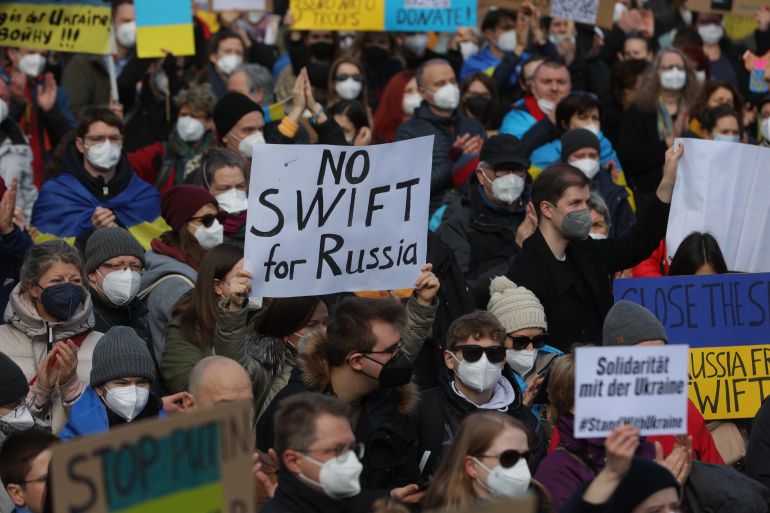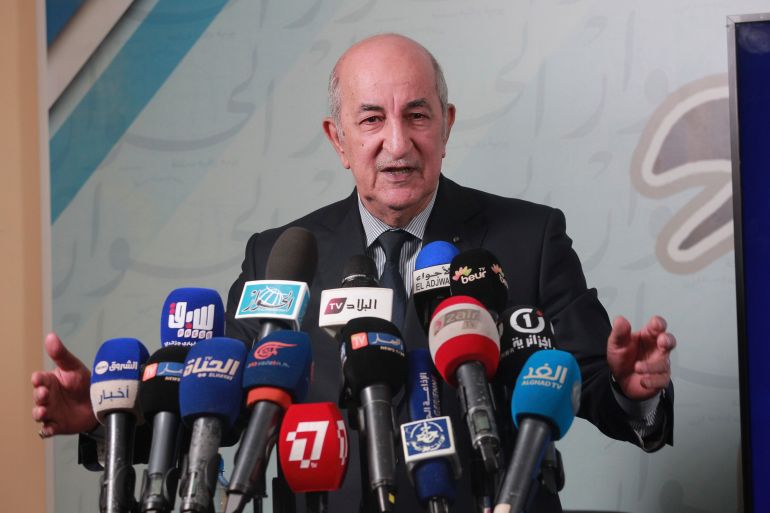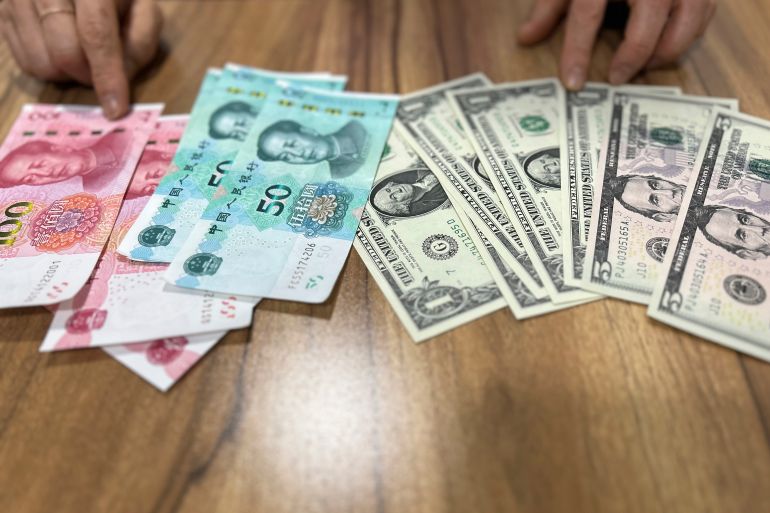Dozens of nations want to join the five-nation club. But to challenge the US-led global hierarchy, BRICS first needs to overcome internal fissures.
They are giant economies, with even bigger populations and still greater ambitions. Starting Tuesday, leaders of the group of nations known as the BRICS – Brazil, Russia, India, China and South Africa – are meeting for a three-day summit, which is expected to draw eyeballs from capitals around the world.
Russian President Vladimir Putin will not attend the August 22-24 conclave in Johannesburg, South Africa, but will participate via a video conference to save the country the embarrassment of hosting a leader with an International Criminal Court (ICC) warrant against him related to Moscow’s war in Ukraine. South Africa is a member of the ICC and, under international law, would have been obligated to arrest Putin if he were to visit.
Yet, while the conflict in Ukraine and deepening geopolitical tensions between the United States and China serve as the backdrop for the summit, the BRICS meeting is likely to foreground the grouping’s growing standing as a force challenging a long-dominant, Washington-led world order.
The expansion of BRICS is expected to be high on the agenda. It is a club in demand. From Algeria to Argentina, at least 40 countries have shown interest in joining the grouping.
Central to the grouping’s attraction is its rising economic heft. The five BRICS nations now have a combined gross domestic product (GDP) larger than that of the G7 in purchasing power parity terms. In nominal terms, the BRICS countries are responsible for 26 percent of the global GDP. Despite this, they get only 15 percent of the voting power at the International Monetary Fund (IMF).
Coupled with grievances over such imbalances are growing concerns in the Global South that the US could weaponise the dollar through sanctions the way it has against Russia. That has led to BRICS nations individually and collectively trying to reduce their dependence on the US currency while increasing bilateral trade in their own currencies.
Agreeing that something needs to change is one thing, but agreeing on how to work together is another. India and China have been locked in a tense border standoff since May 2020. Meanwhile, India, South Africa and Brazil want warm relations with the West as much as they do with China and Russia.
So, will the BRICS emerge as an alternative economic and geopolitical pillar to the US and its allies? Or could their internal differences limit what the group can accomplish?
The short answer: The clout of BRICS nations is likely to grow but the bloc is much more likely to offer piecemeal economic and diplomatic alternatives to the US-led global order than to dramatically replace it, analysts say. That could still lead to more tensions with the West as the grouping’s leaders seek to chart out an independent path in a world in flux. But to remain effective, the BRICS will need to manage the disparate priorities of its member nations – a challenge that will not be easy for the grouping to address.

‘Voice’ of the Global South
In opening remarks at the BRICS foreign ministers meeting in South Africa on June 1, Indian Foreign Minister Subrahmanyam Jaishankar described the current concentration of economic power as one that “leaves too many nations at the mercy of too few”.
Sign up for Al Jazeera
Americas Coverage Newsletter
US politics, Canada’s multiculturalism, South America’s geopolitical rise—we bring you the stories that matter.Sign up

By signing up, you agree to our Privacy Policy
It is a sentiment that resonates across the developing world, where the United Nations Security Council’s veto-holding power remains limited to five nations based on an understanding rooted in 1945, at the end of World War II.
In recent years, cracks in that US-led model have deepened. China, a dominant force in global economics as well as a military powerhouse, is testing the limits of Washington’s influence. Iran’s Foreign Minister Hossein Amir-Abdollahian visited Riyadh last week and met Saudi Arabia’s Crown Prince Mohammed bin Salman in the latest step towards a pathbreaking normalisation of ties between the traditional Middle Eastern rivals, brokered by China.
Russia’s full-scale invasion of Ukraine in 2022 and the subsequent strengthening of relations between Moscow and Beijing – in the face of Western condemnation – have further accelerated the split. India, Brazil and South Africa have carefully walked a tight-rope, refusing to join Western sanctions or other actions against Russia, while also distancing themselves from Moscow’s justifications for the war.
With the West’s footprint receding in part after part of the world – the latest instance being Niger and the Sahel – there is a growing chorus among Africa, Latin America and emerging Asian powers like India to upend the post-Cold War unipolar system.
Russia and China have pitched themselves as champions of this move away from a US-led order, whose rules – in the eyes of the Global South – Washington itself frequently flouts.
In July, Putin was on a full-charm offensive at a summit in St Petersburg with African leaders and officials, quoting Nelson Mandela and name-checking anti-colonial heroes such as Gamal Abdel Nasser and Patrice Lumumba.
“I think it’s time to rectify the historic wrong against the African continent,” he was quoted as saying when discussing a proposal to reform the UN Security Council, and include African nations as permanent members.
India, too, has actively pushed for the African Union to get a seat at the G20 summit, which New Delhi will host next month.
“There is certainly a space for carving out a new world order,” said Vivek Mishra, a fellow at the Observer Research Foundation (ORF) think tank in New Delhi. That space, he said, had been created by a convergence of two factors: the Global South finding its voice and looking for nations that can champion its interests and Russia and China finding themselves “at odds in an unprecedented way with the West”.
However, Mishra said it was important to understand that these two factors do not fully overlap, even if they serve the same interests at this moment.
India does not view China as a voice of the Global South, for instance, he said. Instead, New Delhi views China as behaving like a “developed country trying to impinge on the narrative of the Global South”.
Separately, Russia’s war in Ukraine and the resulting disruption in energy and food supplies have also contributed to skyrocketing inflation across the developing world, mostly hurting the very nations Moscow claims to speak for.
Yet the West’s response to Russia’s war in Ukraine – practically severing Russia from the global financial system through tough sanctions – has also spooked emerging economies worried about the US potentially wielding that power over all of them too.

Follow the money
An alternative financial system is at the heart of the BRICS appeal.
In 2015, the New Development Bank (NDB) – then known as the BRICS Development Bank – was founded, with headquarters in Shanghai, to give the BRICS members more control of development financing and offer an alternative to US-led institutions like the IMF and the World Bank, set up in the aftermath of World War II.
It was a move that Sanusha Naidu, a senior research fellow at the Institute for Global Dialogue, a South African think tank focusing on China and Africa, said showed real intent and told the Global South that it is possible to challenge the global financial institutional architecture.
BRICS nations have also been building “BRICS pay” – a payment system for transactions among the BRICS without having to convert local currency into dollars. Yet, eight years after the NDB was created, the development bank depends largely on dollars and has struggled to secure that currency amid sanctions on Russia, a founding member. Globally, the US dollar accounts for 60 percent of central bank foreign exchange reserves.
Talk of a BRICS currency has gained steam in recent months, though South Africa has made clear it will not be discussed at this summit. Gustavo de Carvalho, a senior researcher on Russia-Africa ties at the Johannesburg-based South African Institute of International Affairs, said that the de-dollarisation initiatives of the BRICS, as a group, are not aimed at replacing the dollar but at creating alternatives to facilitate bilateral trade in local currencies.
The idea, as well as the promise to others who want to join or partner with the BRICS, is simple. In addition to the threat of US sanctions, an overwhelming dependence on the US dollar for trade or repayment of debt is costly when the value of the dollar rises – as it almost invariably does during global crises like the one the world has endured since 2020.
There is another rationale to cut the reliance on the dollar, said de Carvalho. It can increase the leverage of developing nations, serving as a “complementary tool” when making “big decisions around development financing and the role of institutions such as the IMF”.
To see the truly “common views” of the BRICS members, he said, one needs to scroll down their joint communiques to parts that always contain references to the members’ influence, or lack thereof, within the World Bank or the IMF.
Those segments of past BRICS declarations portray the “significant frustration that despite being very sizeable, influential economies”, they perceive their influence as “limited”, he said.
One potential way to make the bloc impossible to ignore? Turn a select club of five into a team of many more.

Strength in numbers
In July, Algerian President Abdelmadjid Tebboune said his country wanted to join the BRICS and had even set aside a kitty of $1.5bn to contribute to the group’s New Development Bank – in essence, to buy its ticket into the gathering. In June, Egypt also requested admission. And over the past year, Argentina, Saudi Arabia and the United Arab Emirates have emerged as other candidates in a lengthening queue to potentially join the bloc, including Indonesia, the world’s fourth most populous country, and Nigeria, Africa’s largest economy.
China, secure in its position at the head of the table, has made it clear that it is happy to explore the idea. And Russia, in need of international friends, has said it is open to letting new members into the club.
Yet, not all members are sure that a bigger BRICS is necessarily a stronger BRICS.
Brazil has been reticent about an expansion, fearing that its influence could be diluted. “An expansion could transform the bloc into something else,” a Brazilian official told Reuters earlier in August.
India, Naidu said, is not comfortable with the issue of expansion, although it is unlikely to veto any move. Instead, New Delhi is pushing for the group to huddle and develop rules and criteria for potential new members to join.
More broadly, Naidu said, India feels the group needs to get its own house in order before looking at new memberships. This includes, among other things, India and China’s three-year-old standoff involving thousands of soldiers stationed along their disputed border in the eastern Ladakh region. Jaishankar, India’s foreign minister, has repeatedly said that relations between the Asian giants are “not normal”.
However, Mishra also said that China had shown signs of softening ahead of the BRICS summit, with a recent pledge by military commanders on both sides to “maintain peace and tranquillity” along the border.
It is unclear whether India’s Prime Minister Narendra Modi and Chinese President Xi Jinping will meet on the sidelines of the summit. How the BRICS two biggest economies manage their relationship could determine whether the bloc thrives or sputters.

Not an ‘either-or’
In the end, a key strength of the BRICS – which its members repeatedly reference – is that, unlike the West, it is not expecting other countries to choose firm alliances.
For instance, trading within BRICS in local currencies or trading with the US in the dollar need not be an “either-or”, said de Carvalho. For many countries, it can simply be a mechanism that can better serve their interests in certain situations.
Simply put, BRICS is looking to offer a parallel set of economic and diplomatic options to nations rather than trying to actively destroy the US-led model. That idea can be difficult for some people – especially in the West – to grasp at a time when “global politics is so divided”, he said.
But BRICS is no stranger to being misunderstood.
De Carvalho recalled how when the BRICS was formed in 2009, it was met with “dismissiveness” by Western diplomats who attended the first summit.
The rhetoric in the West has since morphed into the idea that the BRICS is simply a bloc kowtowing to China and driven by an anti-Western agenda. They may have been wrong both times, analysts say.
Soon, it might be time to listen and accept that the BRICS simply represent a growing global sentiment: others want a seat at the table too.
Source: aljazeera.com




